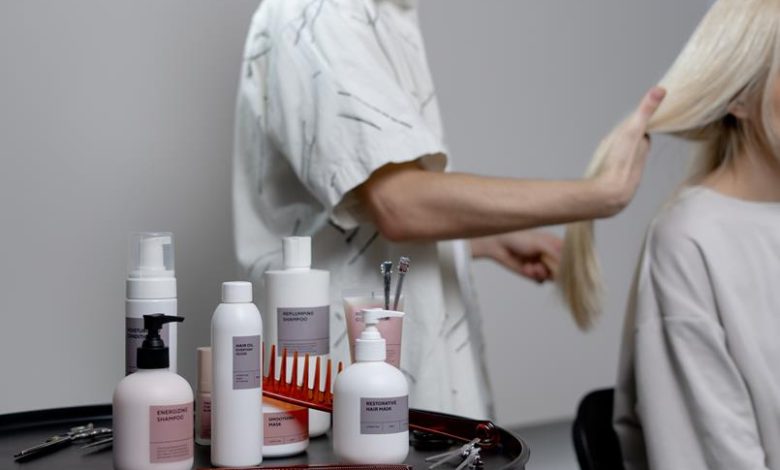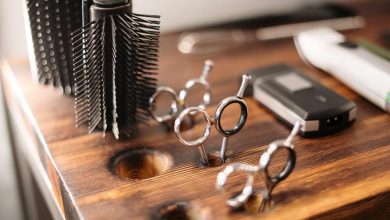What Are Surfactants and Why Are They Used in Hair Products?

In the world of hair care, the adage "cleanliness is next to godliness" holds true, and surfactants are the divine agents that make it possible. These chemical compounds are the unsung heroes in hair products, responsible for cleansing and conditioning our locks. This article will delve into the world of surfactants, exploring their different types, effects on hair and scalp, and the rise of natural alternatives. Join us on this journey as we uncover the secrets behind effective hair care and the vital role of surfactants.
The Role of Surfactants in Hair Cleansing
Surfactants play a crucial role in hair cleansing by effectively removing dirt, oil, and other impurities from the hair and scalp. These chemical compounds are essential ingredients in hair-washing products, such as shampoos. Surfactants reduce surface tension when mixed with water, allowing the product to spread more efficiently and ensure thorough cleaning. They are formulated to interact with both water and oil, allowing them to bind to dirt and oil particles and rinse them away. However, it is important to consider the impact of surfactants on the environment. Some surfactants, particularly those found in traditional shampoos, can be harsh and contribute to water pollution. Therefore, hair product formulation is crucial in creating a balance between effective cleansing and minimizing environmental impact. Modern formulations focus on using milder surfactants and exploring natural alternatives that are biodegradable and eco-friendly.
Understanding the Different Types of Surfactants
An understanding of the different types of surfactants is crucial for formulating effective hair products. Surfactants play a significant role in the science behind hair cleansing and have a direct impact on hair health. Here are five key points to understand about the different types of surfactants:
- Surfactants have hydrophobic and hydrophilic parts, and the length of their hydrocarbon chains affects their effectiveness in removing grease from hair.
- Anionic surfactants provide excellent lathering and oil removal, but some, like sodium lauryl sulfate (SLS), can be harsh and dry the scalp.
- Nonionic surfactants remove oil effectively but can be too drying for most hair types.
- Cationic surfactants cling to the hair shaft and are resistant to rinsing with water.
- Amphoteric surfactants offer a milder formula, making them suitable for shampoos designed for babies and young children.
The Effects of Surfactants on Hair and Scalp
Evaluating the impact of surfactants on hair and scalp involves examining their cleansing efficacy and potential effects on moisture balance and scalp health. Surfactants play a crucial role in removing dirt, oil, and product buildup from the hair, but they can also have potential side effects on the scalp. Harsh surfactants, such as sodium lauryl sulfate (SLS), can strip the scalp of its natural oils, leading to dryness and irritation. Additionally, some surfactants can disrupt the moisture balance of the hair, causing it to become dry and brittle. It is important to choose shampoos with mild surfactants and consider the length of the hydrocarbon chain to minimize these potential side effects. Furthermore, the impact of surfactants on the environment should also be considered, as some traditional surfactants can be harmful to aquatic life.
| Potential Effects on Scalp | Potential Effects on Hair |
|---|---|
| Dryness and irritation | Dryness and brittleness |
| Itchiness | Frizz and lack of shine |
| Redness | Loss of natural moisture |
| Sensitivity | Weakened hair strands |
Exploring Natural Surfactants in Hair Products
Natural surfactants, derived from plant-based sources, provide an alternative option for formulating hair products. They offer several benefits over synthetic surfactants, including being non-toxic, eco-friendly, and biodegradable. Here are some key points to consider when exploring natural surfactants in hair products:
- Sustainable sourcing: Natural surfactants are derived from renewable resources, reducing dependence on fossil fuels and minimizing environmental impact.
- Gentle cleansing: Unlike harsh synthetic surfactants, natural surfactants cleanse the hair and scalp effectively without stripping away the natural oils, resulting in healthier and more balanced hair.
- Scalp-friendly: Natural surfactants are less likely to cause scalp irritation or dryness, making them suitable for individuals with sensitive skin or scalp conditions.
- Nourishing properties: Many natural surfactants come with additional benefits, such as moisturizing and conditioning properties, providing nourishment to the hair and promoting overall hair health.
- Biodegradability: Natural surfactants break down more easily in the environment, reducing pollution and potential harm to water systems.
Balancing Cleansing and Moisturizing With Surfactants
Some surfactants can provide effective cleansing without compromising moisturization, while others can be too drying for certain hair types. It is important to strike a balance between cleansing and moisturizing when formulating hair products. This can be achieved by carefully selecting the type and concentration of surfactants used in the formulation.
Advantages of Using Surfactants:
- Effective cleansing: Surfactants help to remove dirt, oils, and product buildup from the hair and scalp, leaving them clean and refreshed.
- Improved spreadability: Surfactants reduce surface tension, allowing the product to spread evenly and penetrate the hair shaft.
- Enhanced foam: Surfactants create lather, which gives a luxurious and satisfying experience during hair washing.
Potential Drawbacks of Surfactant Use:
- Drying effect: Some surfactants, particularly sulfate-based ones like sodium lauryl sulfate (SLS), can strip the hair of its natural oils, leading to dryness and potential damage.
- Scalp irritation: Harsh surfactants may cause scalp irritation and sensitivity, especially for individuals with sensitive skin or scalp conditions.
- Color fading: Certain surfactants, such as sulfates, can cause color-treated hair to fade more quickly.
To ensure a balanced formula, it is recommended to choose hair products with milder surfactants and to incorporate hydrating ingredients to counteract potential drying effects. Additionally, individuals with scalp irritation or dryness may benefit from using shampoos with amphoteric surfactants or natural alternatives.
Choosing the Right Surfactants for Your Hair Type
Optimizing the performance of hair products requires carefully selecting the surfactants that best suit your specific hair type. The right surfactants can have a significant impact on the health and appearance of your hair. Here are some key considerations when choosing surfactants for your hair:
- Understand your hair type: Determine if your hair is oily, dry, or normal, as this will help guide your choice of surfactants.
- Look for mild surfactants: Harsh surfactants can strip the hair of its natural oils, leading to dryness and damage. Opt for milder options to maintain hair health.
- Consider sulfate-free options: Sulfates, such as sodium lauryl sulfate (SLS), can be drying for many hair types. Choosing sulfate-free surfactants can help prevent dryness.
- Seek moisturizing surfactants: Look for surfactants that have moisturizing properties to help hydrate and nourish your hair.
- Experiment and find what works for you: Each person's hair is unique, so it may take some trial and error to find the right surfactants that work best for your specific hair type and needs.
Surfactants: Essential Ingredients for Effective Hair Care
When it comes to effective hair care, surfactants play a crucial role as essential ingredients. They are responsible for the cleansing and conditioning properties of hair products. However, some surfactants can be harsh and drying, especially for those with sensitive scalps. In such cases, it is important to look for surfactant alternatives that are gentle and suitable for sensitive scalps. Another consideration when using surfactants in hair products is their impact on the environment. Many surfactants, especially those derived from petroleum, can have negative effects on ecosystems. Therefore, it is important to choose hair products that use surfactants derived from renewable sources and are biodegradable. By selecting hair products with mild surfactants and considering their environmental impact, we can ensure effective hair care while minimizing any potential harm.
| Surfactant Alternatives for Sensitive Scalps | Environmental Impact of Surfactants in Hair Products |
|---|---|
| – Look for surfactants derived from natural sources | – Choose hair products with biodegradable surfactants |
| – Opt for milder surfactants that are less likely to cause scalp irritation | – Avoid surfactants derived from petroleum |
| – Consider using baby shampoos with amphoteric surfactants | – Select products that have eco-friendly manufacturing processes |
| – Read product labels and research the surfactants used | – Support brands that prioritize sustainability and environmental responsibility |



